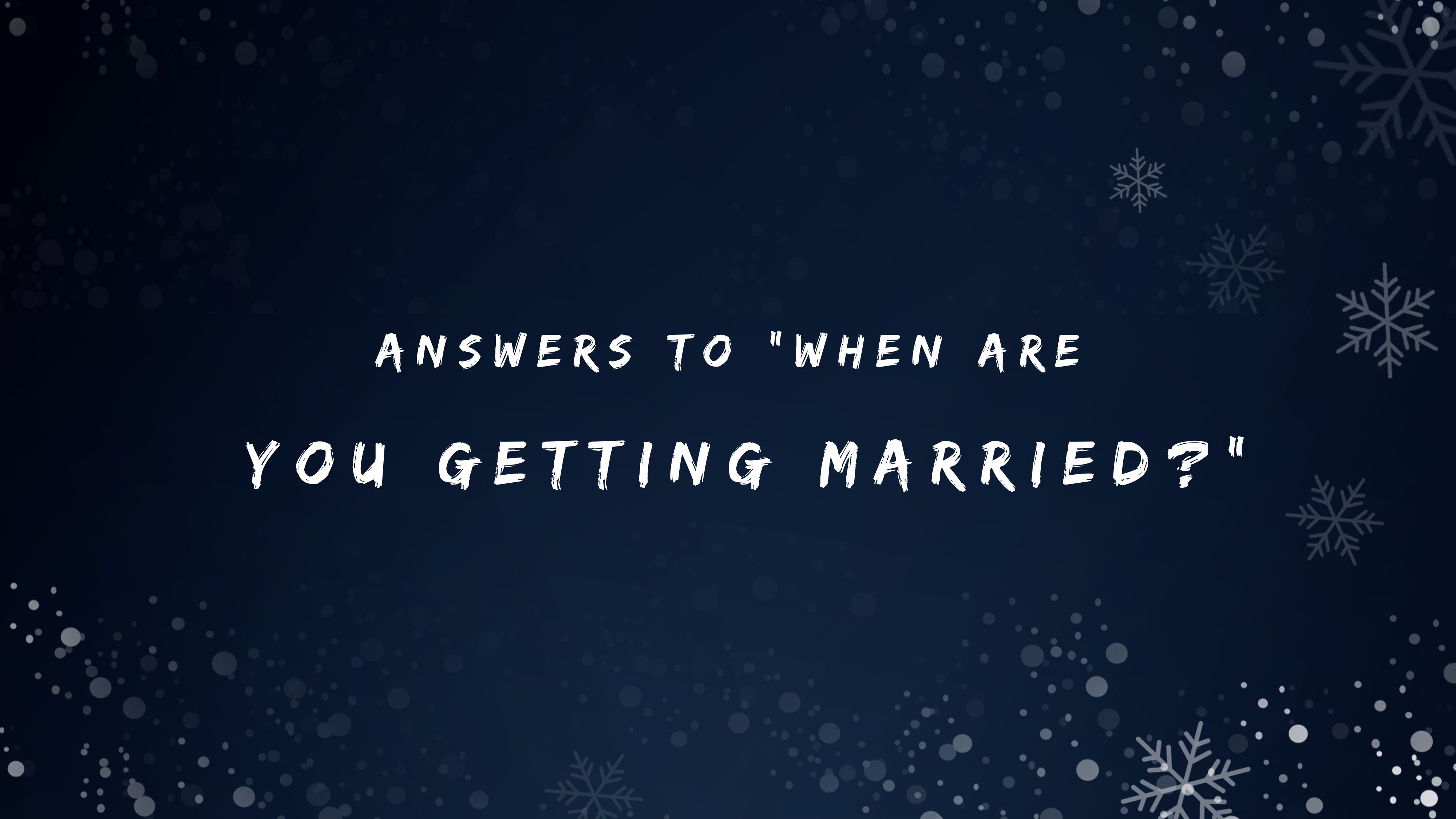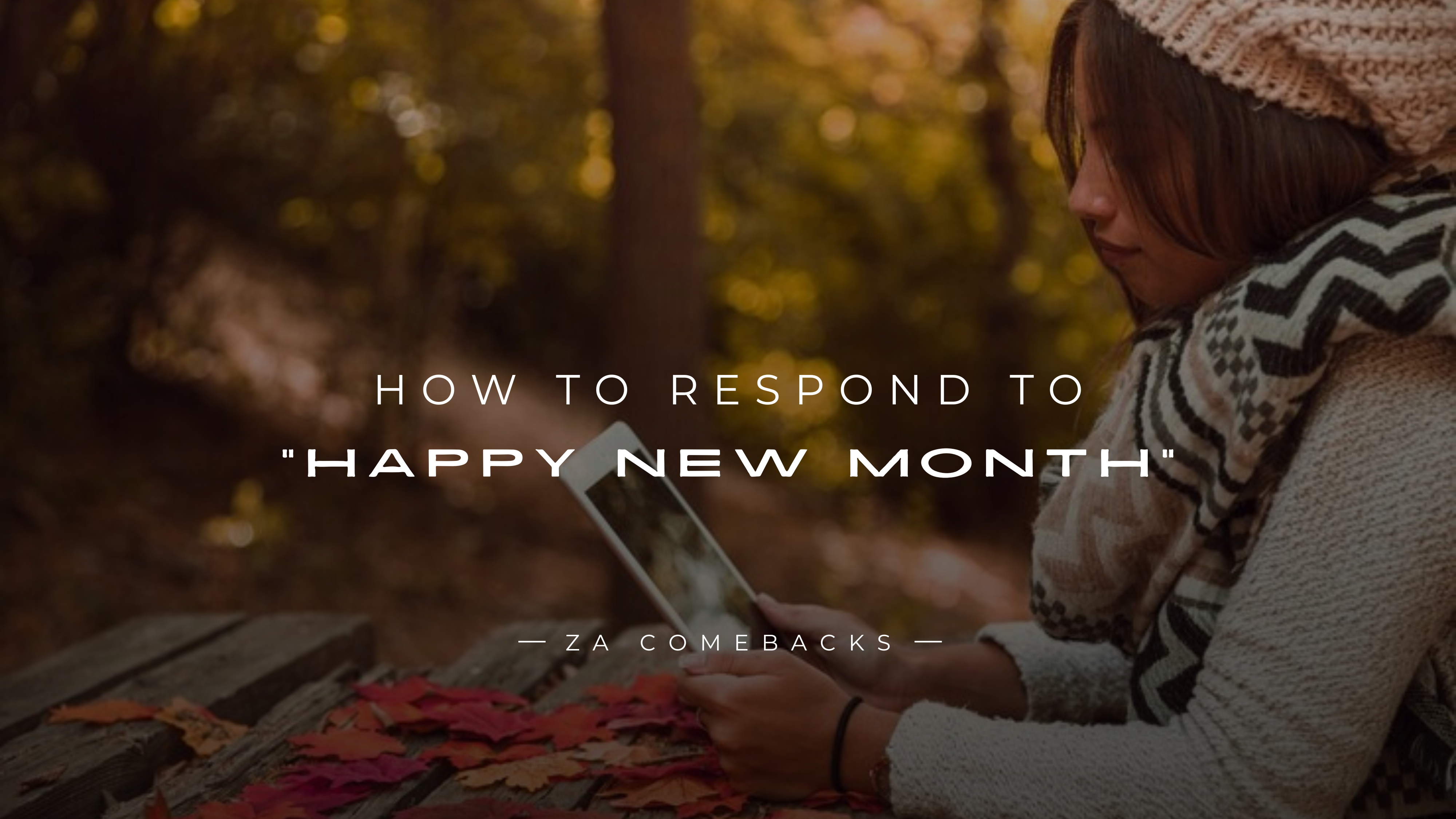Ah, the age-old question: “When Are You Getting Married?” It’s a question that many people face at various stages of their lives, often during family gatherings, social events, or even casual conversations with acquaintances. For some, it’s a harmless inquiry, but for others, it can feel like a loaded question filled with pressure and expectations. So why does this question hold so much weight? And how should we handle it? Let’s dive into the layers behind this common query and explore the best ways to respond.
Understanding the “When Are You Getting Married?” Question
- Why People Ask This Question
People ask the “When Are You Getting Married?” question for various reasons. Sometimes, it’s simple curiosity or an attempt to connect personally. Marriage is often seen as a significant milestone for older generations, a marker of stability and adulthood. Asking about marriage can feel like a natural conversation starter, similar to asking about someone’s job or hobbies.
However, behind this question can also lie deeply rooted social norms. Marriage has traditionally been seen as a crucial life event, one that’s expected to happen at a certain stage in life. For many, it’s assumed that marriage is the logical next step if you’ve been in a relationship for a while or reached a certain age.
- The Pressure Behind the Question
Despite the innocence behind the question, it often carries an underlying pressure. In many cultures, there’s a strong expectation to follow a particular life trajectory: get an education, find a job, get married, and have children. When you deviate from this path—by delaying marriage, opting out of it altogether, or taking an alternative route—it can prompt curiosity or even concern from others.
For some, this question might trigger anxiety, frustration, or even sadness, especially if they’re struggling with the topic of marriage, whether due to personal reasons, relationship challenges, or differing life goals.

150+ Answers To “When Are You Getting Married?”
Humorous Responses
- As soon as I finish training my cat to be the ring bearer!
- Right after, I find out how to fit a llama into a wedding dress.
- When they make a wedding cake out of tacos.
- I await my invitation to the royal wedding to get lost in the mail again.
- After I figure out how to make the wedding registry 100% pizza-related.
- When they start offering ‘buy one, get one free’ weddings.
- It’s probably the same day pigs learn to fly.
- As soon as I can book a venue on the moon!
- Whenever Netflix releases a ‘Plan My Wedding’ show!
- When I finally win a game of Monopoly—so, never!
Deflective Responses
- Oh, who knows? We’re just enjoying the ride for now.
- When the universe decides to let me know!
- That’s a great question! Let me consult my crystal ball.
- Whenever the stars align—I am still waiting on that one!
- You’ll be the first to know as soon as I figure it out myself.
- Oh, no rush! We’re just taking things one day at a time.
- When it feels right! I’m still enjoying the moment.
- I’m just waiting for the perfect wedding weather—whenever that is!
- Why rush a good thing? We’re enjoying the now!
- We’re working on it… slowly but surely.
Romantic Responses
- When I find the person whose hand fits perfectly in mine.
- Once, I met someone who makes my heart sing every day.
- As soon as I fall head over heels in love with someone who’s my perfect match.
- When I find the person who makes every day feel like a fairy tale.
- When two souls align and create a beautiful story together.
- When I meet someone who feels like home, wherever we are.
- Love will guide me there when the time is right.
- When I find the one who completes my heart and soul.
- I’m waiting for that moment when love just clicks into place.
- As soon as I find my forever partner, I’ll be ready to walk down the aisle.
Practical Responses
- When we’ve saved up enough for the kind of wedding we want.
- Once we’ve both settled into our careers and found financial stability.
- When we’ve crossed off a few more goals on our checklist.
- We’re aiming for a time when we’re both ready and have everything in order.
- Once we’ve had the chance to travel and experience life together more.
- When we’ve ensured our living situation is stable and ready for the next step.
- After completing some major life milestones we’ve set for ourselves.
- When we have a bit more time to plan and ensure everything is just right.
- Once we’ve ironed out our long-term plans, both feel completely ready.
- When we’ve ensured we’re both on the same page about our future.
Philosophical Responses
- Marriage is just a formality. What matters is the love we share every day.
- It’ll happen when it’s meant to and not a moment sooner.
- Living in the present will naturally unfold when the time is right.
- Life is a journey, and I trust that the universe will guide us when it’s time.
- The timing of such things is beyond our control; we focus on being the best we can be right now.
- Marriage is a state of being, not a date on a calendar. We’re content with where we are.
- I’m learning that life has its rhythm, and we’ll find our way to marriage when it’s time.
- It will happen when we’re both in a place where our hearts and minds are aligned.
- We’re embracing the flow of life and trusting that the right time will reveal itself.
- Marriage will come when our journey together has prepared us for it.
Sarcastic Responses
- Oh, probably when pigs start dancing in tutus!
- Right after, I became a billionaire and could afford the wedding of my dreams.
- When I find a magic wand to fix all the wedding planning stress!
- Once I figure out how to fit a giraffe into a wedding venue.
- Oh, just as soon as I master juggling flaming torches!
- When unicorns become real and offer to cater the wedding.
- After inventing a time machine, I returned to fix all the little details.
- When I finally won a gold medal in competitive procrastination.
- Right after my pet rock learns to perform a wedding ceremony.
- As soon as I can pull off a surprise wedding with all the planets aligned!
Family-Oriented Responses
- When we can have everyone we love in one place to celebrate.
- We’re waiting to have the big family gathering we’ve always dreamed of.
- Once we find a time that works for both sides of the family.
- When we’re sure, all our favorite people can be there to share the day with us.
- We want to plan it around the family holidays so everyone can enjoy the fun.
- When we can coordinate schedules with our families and have everyone together.
- Once we’ve found a date that fits perfectly into our family’s busy calendar.
- Everyone can be part of the celebration when we’ve sorted out the family logistics,
- We’re waiting to ensure all our family traditions are included.
- When we’ve worked out all the details, our families will be able to enjoy the day as much as we will.
Single and Loving It Responses
- Oh, I’m thoroughly enjoying my single life right now, thanks!
- Why rush into marriage when being single is this fabulous?
- I’m too busy loving life and doing what I want to think about marriage right now.
- I’m not planning on getting married anytime soon—single life is treating me well!
- I’m focusing on myself and all the exciting things I get to do as a single person.
- Marriage isn’t on my radar now; I’m too busy having a great time solo.
- I’m perfectly content with where I am right now and not in any hurry to change that.
- I’m enjoying the freedom and flexibility that comes with being single.
- There’s no rush for me—loving the single life and all the adventures it brings!
- I’m savoring every moment of my journey before even thinking about marriage.
Relationship Status Clarification
- I’m currently single, so no wedding plans are on the horizon.
- We’re not in a relationship at the moment, so no wedding plans yet!
- I’m still looking for the right person before thinking about marriage.
- Once I’m in a relationship, I’ll start thinking about it!
- I’m not in a serious relationship, so marriage isn’t on the table right now.
- I’m not currently seeing anyone seriously enough to be planning a wedding.
- I’m still searching for the right partner before thinking about tying the knot.
- Marriage is a bit distant since I’m not currently in a relationship.
- I’m focused on finding a meaningful connection first before considering marriage.
- I have no wedding plans since I’m still single and not in a serious relationship.
Traditional Responses
- When the time is right, everything falls into place.
- We’re planning for a date that aligns with our family traditions.
- Once we’ve made all the necessary preparations and are ready for this step.
- When we can ensure that everything is in line with our values and expectations.
- We’re waiting for the right moment that feels significant.
- When we’ve fulfilled all the traditional milestones and are ready for this commitment.
- Once we’ve celebrated enough important moments and feel ready to take this step.
- We can plan a memorable event when we’ve met all the family expectations.
- When our journey has led us to a point where marriage feels like the natural next step.
- Once we’ve honored the customs and traditions that are important to us.
Avoidant Responses
- Let’s change the subject. How about that new movie?
- I’d rather not get into the details right now.
- I’m not sure; it’s not something I’m focused on now.
- Can we talk about something else? I’m not quite ready to discuss this.
- I don’t have a set date yet, but I’ll let you know when I do.
- Oh, I haven’t thought about it. Let’s move on to another topic.
- I’d prefer to keep that to myself for now. Thanks for understanding.
- I don’t have a specific timeline in mind right now.
- That’s a bit of a personal question. Can we chat about something else?
- I’m not ready to share details on that just yet. Thanks for asking, though.
Optimistic Responses
- I’m sure it will happen sooner than we think, and it will be perfect!
- I’m confident that the right time is just around the corner.
- Everything is falling into place, and I feel it’ll be soon.
- I hope we’ll be ready to make it official soon.
- I’m excited about what’s ahead and optimistic that it will happen soon.
- I have a good feeling that we’ll be celebrating before we know it!
- The future looks bright, and I hope marriage is soon approaching.
- I’m looking forward to the day and have a positive outlook on when it will come.
- Things are moving in the right direction, and I’m optimistic about our future together.
- I’m excited and hopeful that everything will align perfectly for us soon.
Personal Growth-Focused Responses
- I’m focusing on personal growth right now, and I’ll know when the time is right.
- I’m concentrating on becoming the best version of myself before taking that step.
- Marriage will come when I’ve reached a place where I feel truly content and fulfilled.
- I’m working on my personal goals and growth, and I believe marriage will follow.
- I want to make sure I’m in a strong place emotionally and personally before thinking about marriage.
- I’m investing in my development and happiness right now. The rest will follow.
- I’m focusing on self-improvement and trust that marriage will come when I’m ready.
- I’m taking the time to grow and learn more about myself, which will prepare me for marriage.
- Marriage is a future goal, but I’m now committed to personal growth and well-being.
- I believe in growing and evolving as an individual first; marriage will come when it’s meant to.
Religious or Spiritual Responses
- I’m waiting for it to align with God’s plan for me.
- In my faith, the right time will be revealed to me by a higher power.
- When the timing is right, it will be guided by divine intervention.
- I’m praying for clarity and trust that it will happen according to divine will.
- I’ll be ready when it’s part of God’s plan for my life.
- I’m leaving it to faith; the right time will be part of my spiritual journey.
- A higher power will guide me to the right moment for marriage.
- I’m following the spiritual path and believe marriage will come right now.
- I’m open to divine timing and trust that the right moment will be revealed to me.
- Marriage will come when it’s meant to, according to the plan for me.
Goal-Oriented Responses
- Once we’ve accomplished a few key goals, we’ve set for ourselves.
- When we’ve achieved our major life objectives and are ready for this new chapter.
- When we’ve ticked off the important milestones on our personal and professional goals list.
- Once we’ve reached our financial and career goals and feel stable enough.
- When we’ve completed the projects and dreams we’re currently focused on.
- Once we’ve achieved the goals as a couple and individually.
- When we’re both in a position where we’ve met our personal and joint objectives.
- When we’ve reached stability and success, that makes us feel ready.
- Once we’ve accomplished the major life goals, we’ve set for ourselves as a team.
- Once we’ve worked through our list of goals, we’ll be in a great place to start this new journey.
The Emotional Impact of “When Are You Getting Married?”
- How This Question Affects Individuals
The emotional impact of this question varies from person to person. Some may brush it off with a lighthearted answer, while others may feel deeply affected. For those who aren’t in a relationship, are going through a breakup, or are unsure about marriage, this question can feel like an unwanted reminder of societal expectations they’re not meeting.
Feelings of inadequacy or being out of step with peers can arise, and constant questioning can make individuals feel like their worth is tied to their marital status. The pressure is real, and the emotions it stirs up can be overwhelming.
- Coping with the Pressure
So, how can you cope with this pressure? First, it’s essential to recognize that everyone’s journey is different, and there’s no right or wrong timeline for marriage (or any life event). Practicing self-compassion and reminding yourself that your path is unique can help reduce the sting of these questions. Additionally, having a few go-to responses—humorous, neutral, or direct—can help you feel more prepared and in control when the question arises.
Different Perspectives on Marriage
- Traditional Views on Marriage
Traditionally, marriage has been seen as a cornerstone of adulthood and a necessary step in building a family. In many cultures and religions, marriage is considered sacred, a bond that solidifies love and partnership in a formal and public way. For generations, marriage was often viewed as a duty, something you do for yourself, your family, and your community.
- Modern Perspectives on Marriage
However, modern perspectives on marriage have shifted. Today, more people are questioning the necessity of marriage and exploring alternative ways of building relationships and families. The rise of cohabitation, single parenthood, and long-term partnerships without marriage shows that there are many ways to create a fulfilling life without following traditional norms. For some, marriage is no longer the ultimate goal but rather a choice that may or may not fit into their life plans.
How do you respond to the question, “When are you getting married?” Question
- Lighthearted Responses
One of the best ways to handle the “When Are You Getting Married?” question is with humor. A lighthearted response can defuse the situation and signal that you’re not taking the question too seriously. For example, you might say, “Oh, I’m just waiting for the royal wedding invite!” or “As soon as I find someone who can handle my cooking skills!” Humor allows you to address the question without feeling pressured to give a serious answer.
- Serious Responses
On the other hand, there are times when you might want to respond seriously, especially if the question comes from someone close to you who deserves a thoughtful answer. Please explain your current priorities, values, or timing in this case. For instance, “I’m focusing on my career right now, and I want to make sure I’m in the right place before I take that step,” or “Marriage isn’t something I’m rushing into; I want to be sure it’s the right decision for me.”
Societal Expectations vs. Personal Timing
- Why Rushing into Marriage Can Be Harmful
Rushing into marriage to meet societal expectations can lead to problems. Marriage is a significant commitment, and making that decision based on external pressure rather than personal readiness can result in regret or dissatisfaction. It’s important to ensure that both partners are on the same page and that the decision to marry is made for the right reasons, not just to meet a deadline set by others.
- The Importance of Personal Timing
Personal timing is crucial when it comes to marriage. Whether you’re ready to marry at 25 or 45, the decision should be based on your circumstances, relationship, and readiness for that commitment. Everyone’s timeline is different, and there’s no one-size-fits-all approach to when or if marriage should happen. Taking the time to assess your readiness and make a decision that feels right for you is far more important than adhering to societal norms.
How Family Dynamics Influence the Question
- Parents and Their Expectations
Family dynamics can significantly influence how often and intensely you face the “When Are You Getting Married?” question. Parents, in particular, may have their dreams and expectations for their children’s lives, including marriage. For some parents, seeing their child married symbolizes success and security. This can lead to frequent questioning and sometimes even pressure to settle down, especially if they’re concerned about your future.
- Extended Family and Social Circles
It’s not just parents who may be curious about your marital status. Extended family members—like aunts, uncles, and even cousins—and friends- can also raise the question. Social gatherings like weddings, holidays, and reunions often become prime opportunities for these questions. Understanding that these inquiries are often rooted in care or tradition can help you navigate them gracefully.
Cultural Differences in the “When Are You Getting Married?” Question
- Marriage in Western Cultures
In Western cultures, marriage has seen a gradual shift over the years. While it was once a societal expectation, more and more people are delaying marriage or choosing not to marry at all. Factors like career focus, personal development, and a desire for independence broaden acceptance of various life paths. Still, the question persists, especially in more traditional circles.
- Marriage in Eastern and Traditional Cultures
In contrast, many Eastern and traditional cultures emphasize marriage more heavily. In some cultures, marriage is not just a personal choice but a family expectation, and it can be seen as a duty to marry within a certain timeframe. In these cultures, the pressure to marry can be more intense, and the question may come up more frequently, often starting at a younger age.
The Evolution of Marriage in Modern Society
- The Decline of Marriage Rates
In modern society, marriage rates have been on the decline. More people are choosing to remain single, cohabitate, or delay marriage until later in life. Economic factors, changing gender roles, and shifting attitudes toward relationships contribute to this trend. As a result, “When Are You Getting Married?” may feel increasingly out of touch for many people charting their course.
- The Rise of Cohabitation and Non-Traditional Relationships
Alongside the decline in marriage rates, there’s been a rise in cohabitation and other non-traditional relationship models. Many couples choose to live together without getting married, focusing on building a life together without the formalities of marriage. For these couples, the question of marriage may feel irrelevant or even outdated, as they’ve already committed to each other in meaningful ways outside of the traditional framework.
Setting Boundaries Around Personal Life Questions
- Why Boundaries Matter
Setting boundaries around personal life questions is essential for maintaining mental and emotional well-being. While some people may ask out of genuine curiosity or concern, it’s important to recognize that you don’t owe anyone an explanation for your life choices. Clear boundaries can help protect your privacy and ensure you’re not constantly pressured to explain yourself.
- How to Politely Set Boundaries
Setting boundaries doesn’t have to be confrontational. You can politely but firmly let people know that certain topics are off-limits. For example, you might say, “I appreciate your concern, but I’m uncomfortable discussing my relationship status right now.” Being honest about your boundaries can help others understand your perspective and reduce the frequency of intrusive questions.
Dealing with Repeated Questions from the Same Person
- Staying Patient and Calm
When the same person repeatedly asks you the same question, it can be challenging to stay patient. However, maintaining your composure is essential. Responding calmly and consistently can help reinforce your boundaries and prevent escalating situations. Remember, it’s often not about you—it’s about their perspective.
- Firm but Respectful Responses
If the repeated questioning continues, you should be more direct. A firm but respectful response can help set clear limits. For example, “I understand you’re curious, but I’ve already shared my thoughts. I’d appreciate it if we could focus on other topics.” This approach balances assertiveness with respect, clarifying that the conversation needs to shift.
The Role of Social Media in Marriage Pressure
- Comparing Life Events Online
Social media has become a significant source of pressure in marriage. Seeing friends and acquaintances post about engagements, weddings, and anniversaries can amplify feelings of inadequacy or make you feel like you’re falling behind. The curated nature of social media often highlights the happiest moments, creating a distorted view of reality that can increase the pressure to conform.
- Digital Boundaries and Self-Care
Establishing digital boundaries is crucial to combating social media pressure. Limiting exposure to certain types of content, unfollowing accounts that trigger stress, or taking breaks from social media altogether can help protect your mental health. Remember, social media is just a snapshot of someone’s life, not the full picture.
Why It’s Okay Not to Have a Timeline
- Embracing Your Path
Not everyone has the same timeline for life events, and that’s perfectly okay. Whether you choose to marry early or late, what matters most is that you’re living life on your terms. Embracing your unique path allows you to focus on what makes you happy rather than trying to meet someone else’s expectations.
- Redefining Success Beyond Marriage
Success in life isn’t defined solely by marriage. It’s about personal growth, fulfillment, and creating meaningful connections—whether that’s through career achievements, friendships, travel, or other pursuits. Redefining success beyond traditional milestones allows you to celebrate your life in meaningful ways.
How to Support Friends or Family Members Facing This Question
- Offering Emotional Support
If you have friends or family members frequently ask the “When Are You Getting Married?” question, offering emotional support can make a big difference. Being a compassionate listener and validating their feelings can help them navigate the pressure more effectively. Sometimes, just knowing that someone else understands can be incredibly reassuring.
- Encouraging Healthy Conversations
Encouraging healthy conversations around marriage and life choices can also help shift the narrative. Instead of focusing on marriage as the ultimate goal, discuss broader topics like personal growth, happiness, and fulfillment. This can help create a more supportive environment where people feel valued for who they are, not just their relationship status.
Conclusion
Navigating the question, “When are you getting married?” can often be daunting, but with the right response, you can turn it into an opportunity for humor and confidence. Whether you’re dealing with curious relatives or well-meaning friends, our collection of 150+ answers provides a range of options to suit any situation. Remember, it’s all about finding a reply that feels true to you while lightening the mood. And if you ever find yourself overwhelmed by a different kind of social interaction, like dealing with double texts, we’ve got you covered there, too.
Check out our guide on:
What to Do When You Get Double Texts: 150+ Responses
FAQs
Q. Why do people ask, “When Are You Getting Married?”
People often ask this question out of curiosity or because of societal norms. It’s a way to connect with others, especially since marriage is traditionally seen as a significant life milestone.
Q. How can I respond to the marriage question without offending anyone?
You can respond with humor, a polite deflection, or a straightforward but kind explanation of your current priorities. Tailor your response to the situation and your comfort level.
Q. What if I never want to get married?
It’s perfectly okay to decide not to get married. Your life choices are your own; marriage isn’t the only path to fulfillment or success. Embrace your decision and surround yourself with people who support your choices.
Q. Is marriage still important in modern society?
Marriage remains important to many, but modern society offers more flexibility in life choices. Many people find fulfillment through alternative relationship models, cohabitation, or focusing on personal growth.
Q. How do I avoid feeling pressured by this question?
To avoid feeling pressured, remind yourself that everyone’s timeline is different. Set boundaries, practice self-compassion, and focus on making decisions that align with your values rather than societal expectations.










